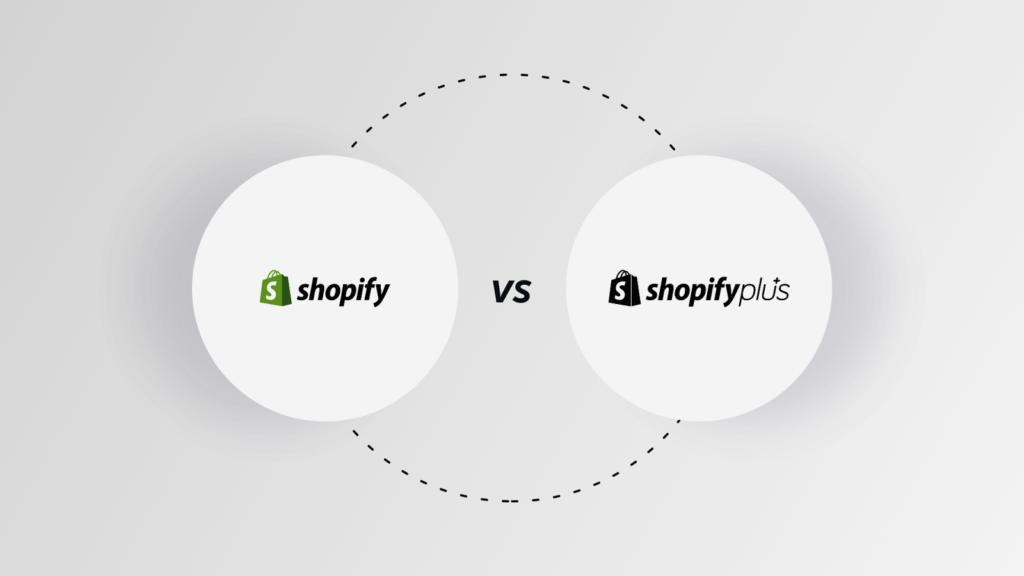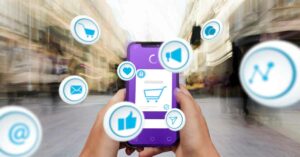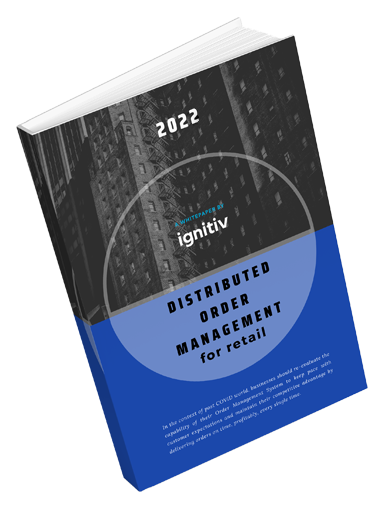The eCommerce industry has experienced an unprecedented transformation over the past few years. In fact, eCommerce sales in the US increased by five times between 2011 and 2021.
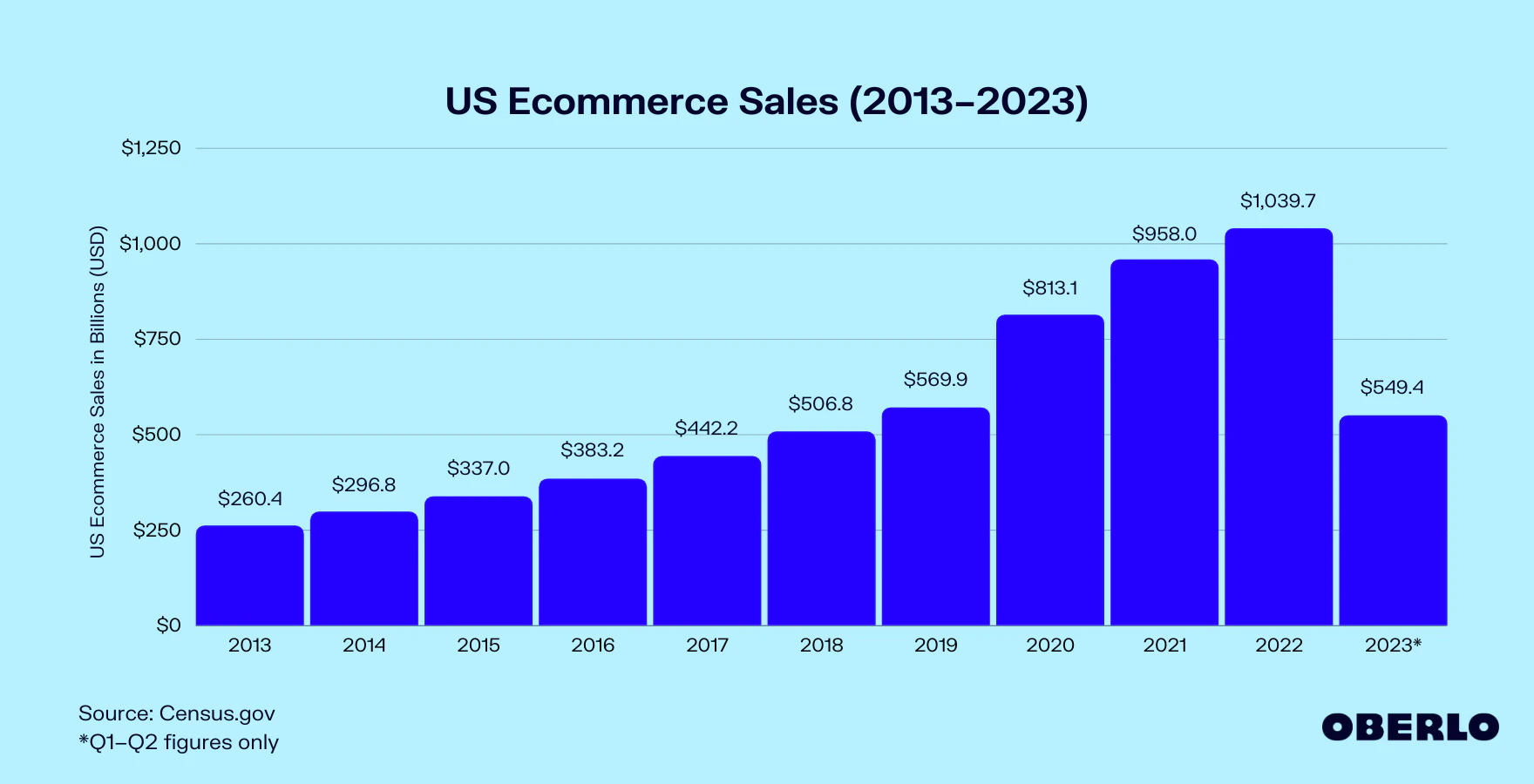
With the advent of new technologies and a shift towards a digital-first approach, eCommerce has emerged as an integral part of the retail landscape. However, the scope of eCommerce extends far beyond the traditional retail space, with businesses in non-traditional sectors also embracing eCommerce as a means to drive growth and innovation.
As technology continues to evolve, businesses are exploring new and innovative ways to leverage eCommerce technology to improve their offerings and enhance customer experiences. From the healthcare sector to education, finance, and beyond, businesses are finding new ways to incorporate eCommerce into their operations.
In this blog post, we will explore the new frontiers of the eCommerce world and how it is transforming non-traditional sectors.
About eCommerce
eCommerce, or electronic commerce, is the process of buying and selling goods or services online. It has been around since the 1990s, but it wasn’t until the mid-2000s that eCommerce gained significant momentum. Today, eCommerce is a multi-billion-dollar industry that is projected to continue growing. In fact, Statista projects the eCommerce market to reach $4.11 trillion in 2023.
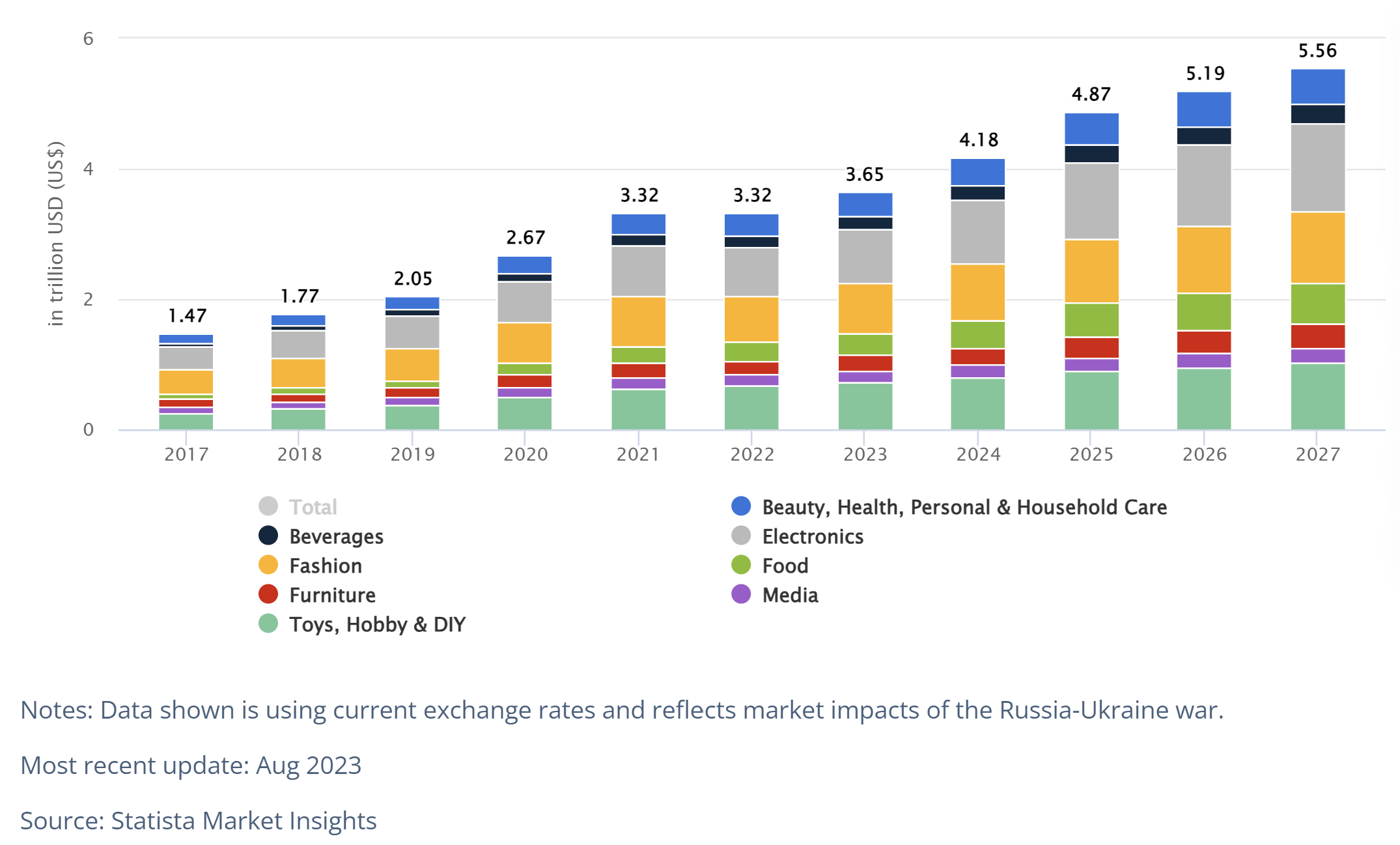
eCommerce in Non-Traditional Sectors
One example of eCommerce in non-traditional sectors is Ignitiv’s project in the pharma space. We’ve helped major pharma companies streamline their eCommerce operations. The projects have involved developing an eCommerce platform that enables customers to buy prescription drugs online. Explore our work here.
Other sectors are also embracing eCommerce, and for good reason.
Healthcare
The healthcare industry has been one of the earliest adopters of eCommerce technology, recognizing the potential for digital solutions to improve patient care and enhance the overall healthcare experience. eCommerce has enabled healthcare providers to offer a range of digital services to patients, including the online booking of appointments, virtual consultations, and access to medical records.
Education
The education sector has also been significantly influenced by the rise of eCommerce, particularly in the realm of online learning. With the advent of eCommerce, universities and other educational institutions have been able to offer online courses and degree programs to students from around the world.
Finance
Online banking has become increasingly popular, with more and more consumers opting to conduct their banking transactions online. With the help of eCommerce technology, financial institutions can provide their customers with a seamless and convenient banking experience, from opening accounts to managing finances and making payments.
Automotive
In recent years, we have seen the emergence of online car-buying platforms, which enable customers to purchase vehicles entirely online, from selecting a car to financing and delivery. This trend is expected to continue, with more and more automotive brands exploring eCommerce as a means to connect with customers and drive sales.
Food & Beverages
The food and beverages industry is another sector that is increasingly leveraging eCommerce technology. With the proliferation of food delivery services and online grocery shopping, eCommerce has become an essential tool for businesses in this sector. Customers can now order their favorite meals online and have them delivered to their doorstep, saving time and hassle. Businesses in this sector are also exploring new and innovative ways to incorporate eCommerce into their operations, such as using data analytics to personalize menus and offers.
The scope of eCommerce extends far beyond traditional retail, and businesses in a wide range of sectors are finding new ways to leverage eCommerce technology to drive growth and innovation. After all, by embracing eCommerce, businesses can connect with customers in new and innovative ways, enhance customer experiences, and drive sales.
The Coming of Headless Commerce (and Its Applications)
Headless commerce is an approach to eCommerce where the front-end (or user interface) and back-end (or business logic) are separated. This approach allows businesses to create custom front-ends that can be tailored to specific devices. Headless commerce also enables businesses to provide a more personalized and engaging user experience.
The benefits of headless commerce include increased flexibility and scalability, as well as faster page loading times. Headless commerce also allows businesses to experiment with different front-end designs without disrupting back-end operations.
The Coming of Composable Commerce (and Its Applications)
Composable commerce is a modular approach to eCommerce that enables businesses to create custom solutions using pre-built components. This approach is based on an API-first architecture, which means that each component is designed to work independently but can also be integrated with other components to create a custom solution.
The benefits of composable commerce include increased flexibility, faster time to market, and reduced development costs. Composable commerce also allows businesses to build custom solutions that are tailored to their specific needs.
Future of eCommerce in Non-Traditional Sectors
The future of eCommerce in non-traditional sectors is bright. We can expect to see continued growth and innovation in this space. However, there are also potential challenges to consider, such as data security, privacy concerns, and regulatory compliance.
To stay competitive, organizations must proactively explore new frontiers of the eCommerce world. This translates into embracing new technologies and approaches, such as headless commerce and composable commerce, and applying them in innovative ways. Businesses must also focus on creating a seamless and personalized user experience – leveraging customer data to tailor their offerings.
For example, in the healthcare sector, we can expect to see more personalized and remote healthcare services. Likewise, the e-learning and m-learning trends are expected to be supported by eCommerce advances. And not to forget the finance sector, where we can expect to see more financial services moving online, such as online investment platforms and virtual banking.
Overall, the future of eCommerce in non-traditional sectors is promising. At Ignitiv, we help businesses develop innovative and personalized eCommerce solutions to enhance customer experiences and drive interminable growth. Connect with us to learn more.


